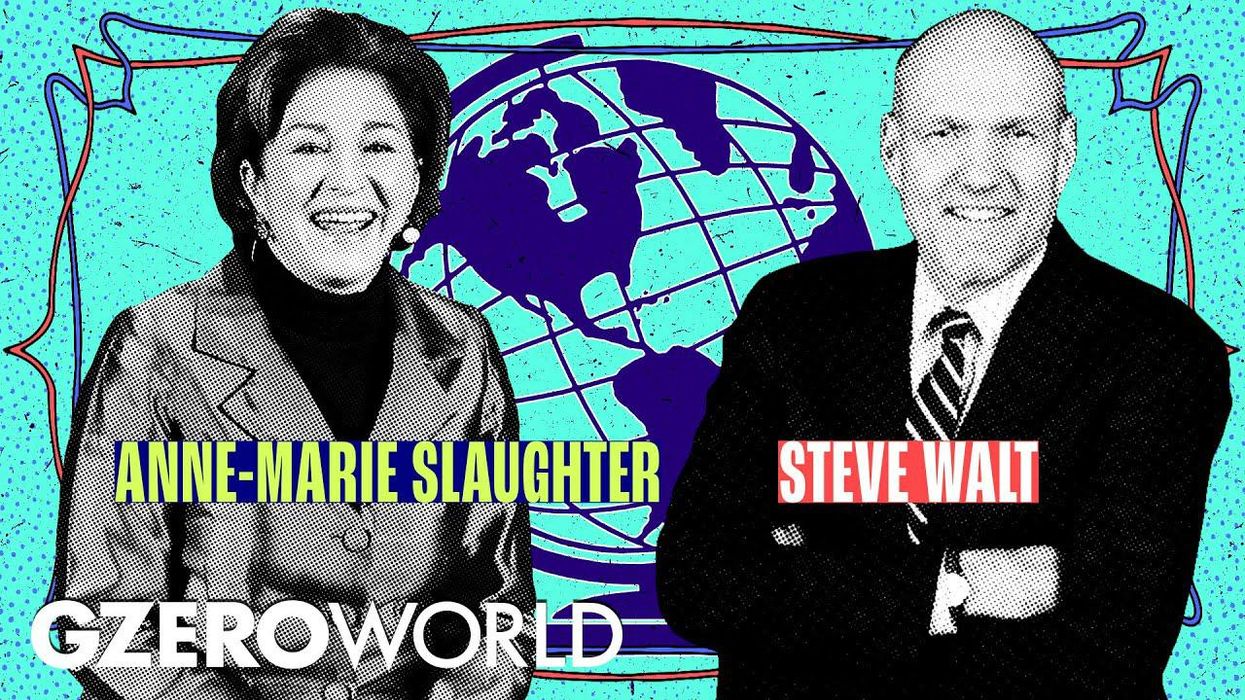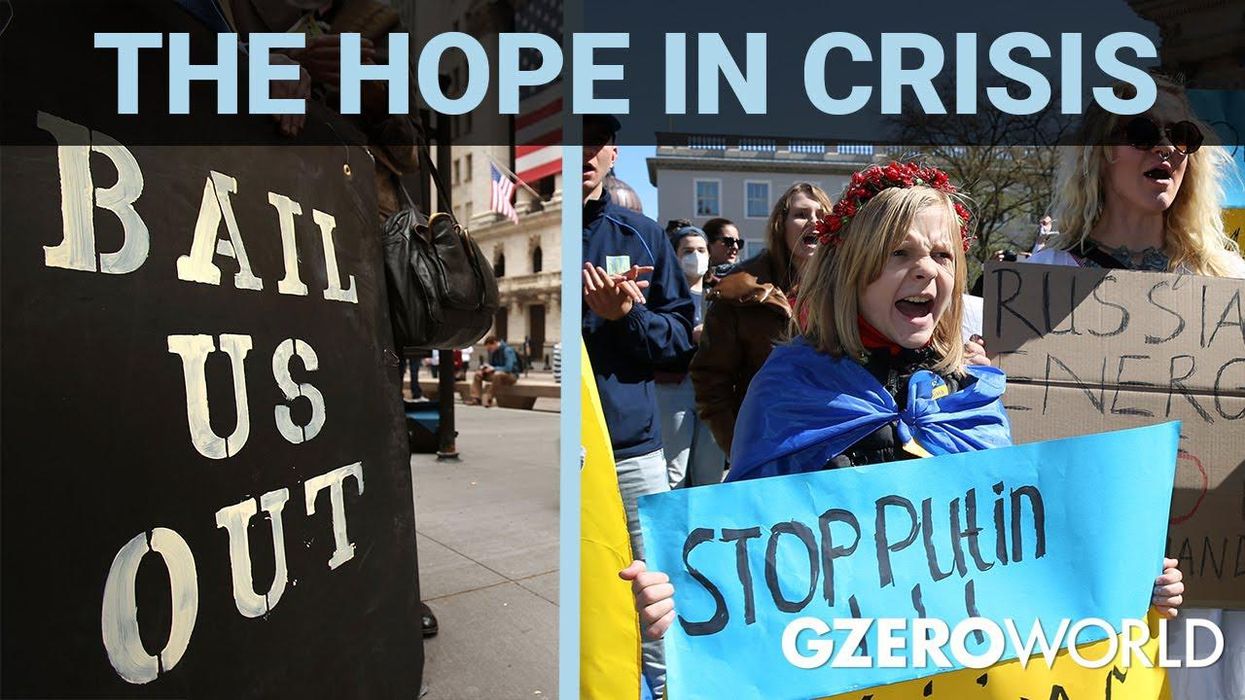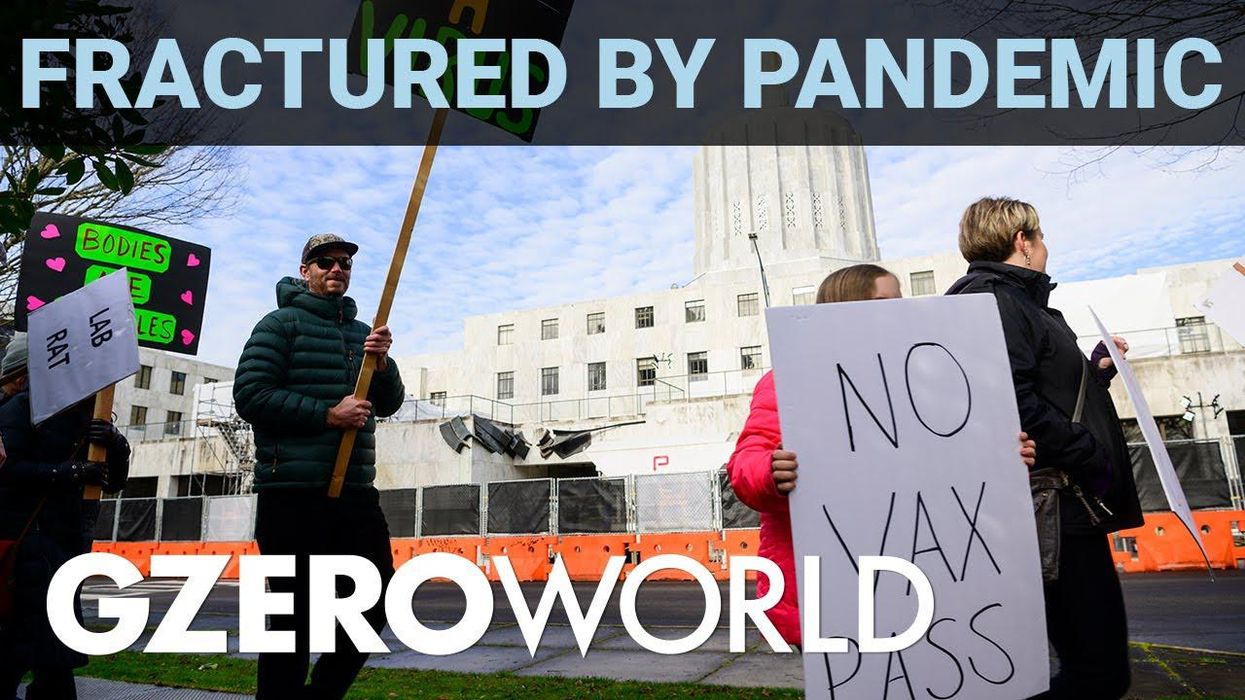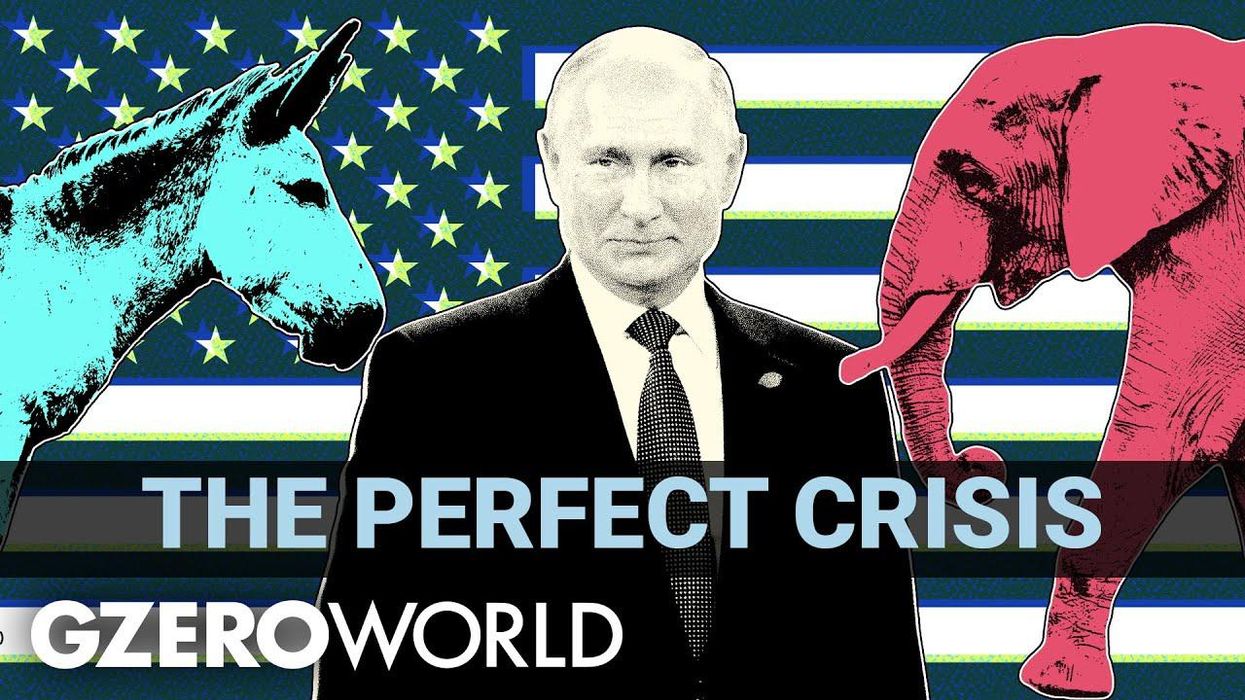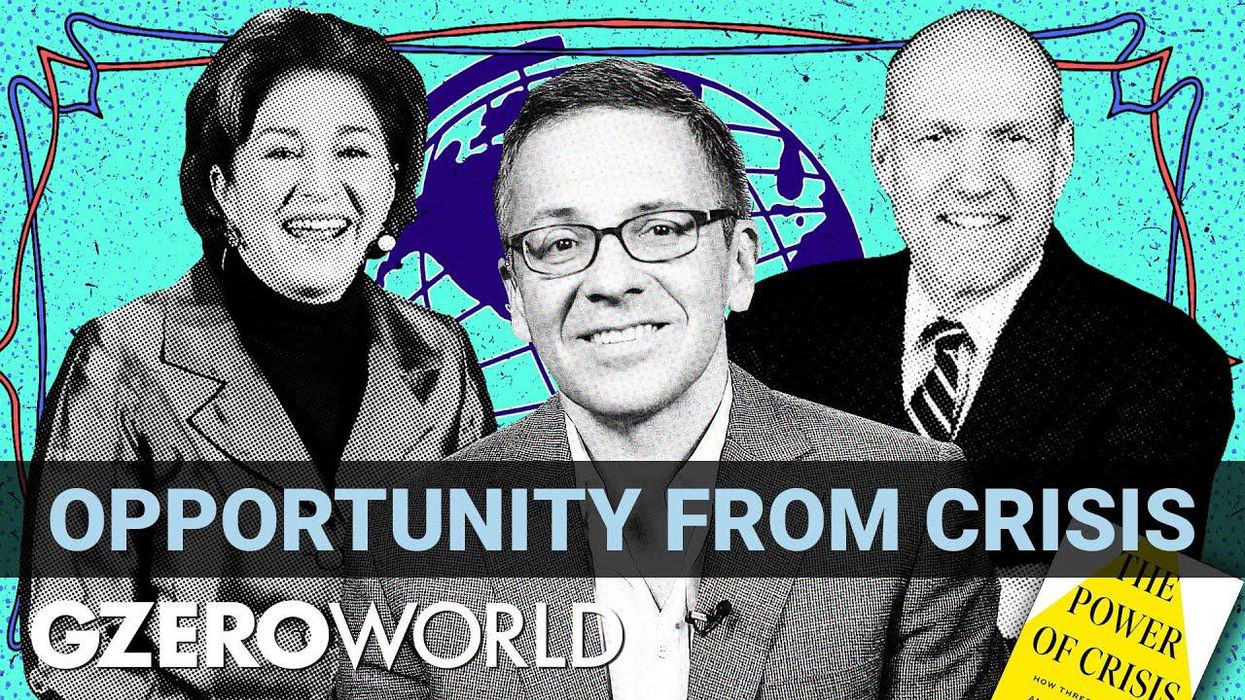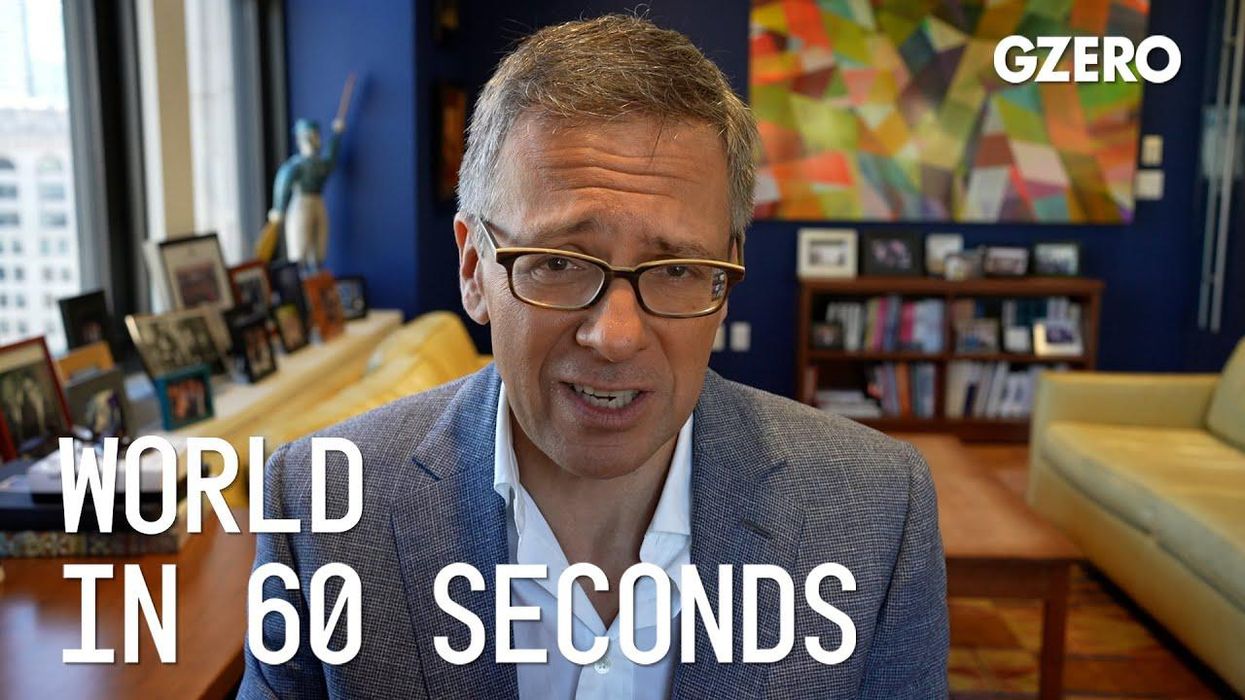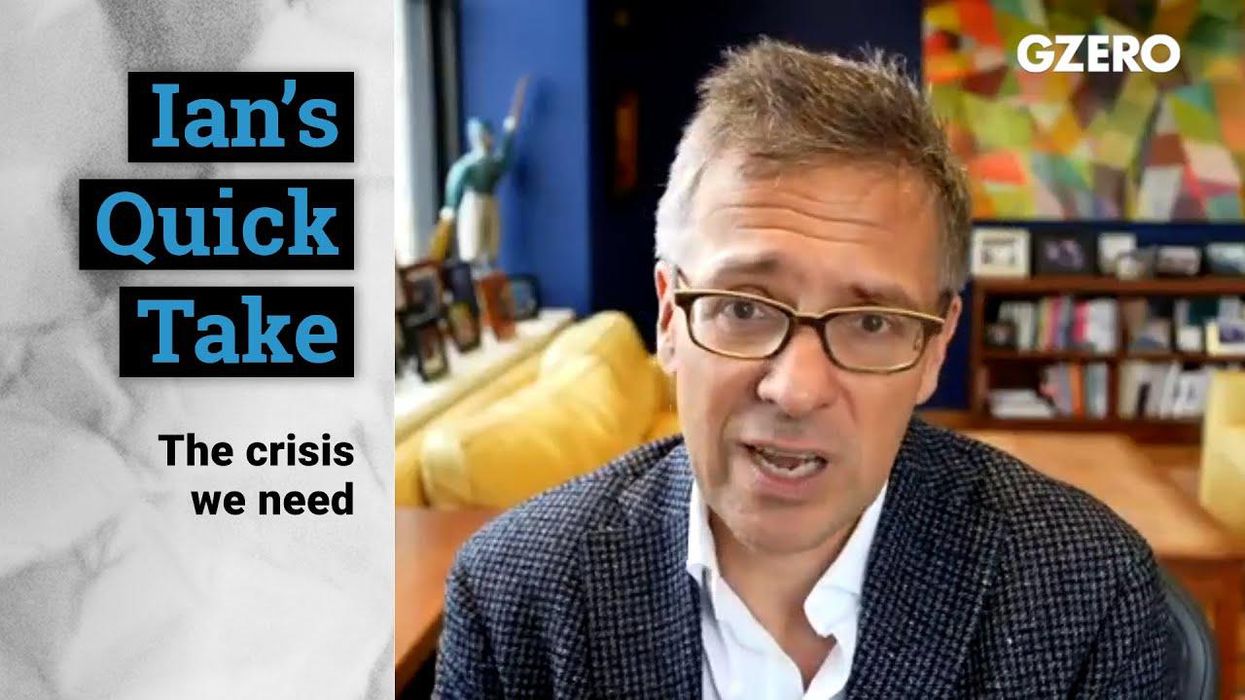GZERO World Clips
What the West is doing wrong in the world's biggest crises
To fix our broken international political system, we need a crisis. For instance, a pandemic, climate change, Big Tech having too much power, or a Russia invasion of Ukraine. But it must be a crisis that's so destructive it forces us to respond fast, and together — like World War II. That's the crisis that created the international system we have today, and kept the peace until now. On GZERO World, Ian Bremmer talks to Anne-Marie Slaughter, former US State Department official and now CEO of New America, and political scientist and Harvard professor Stephen Walt about the war and other crises.
Jun 12, 2022
